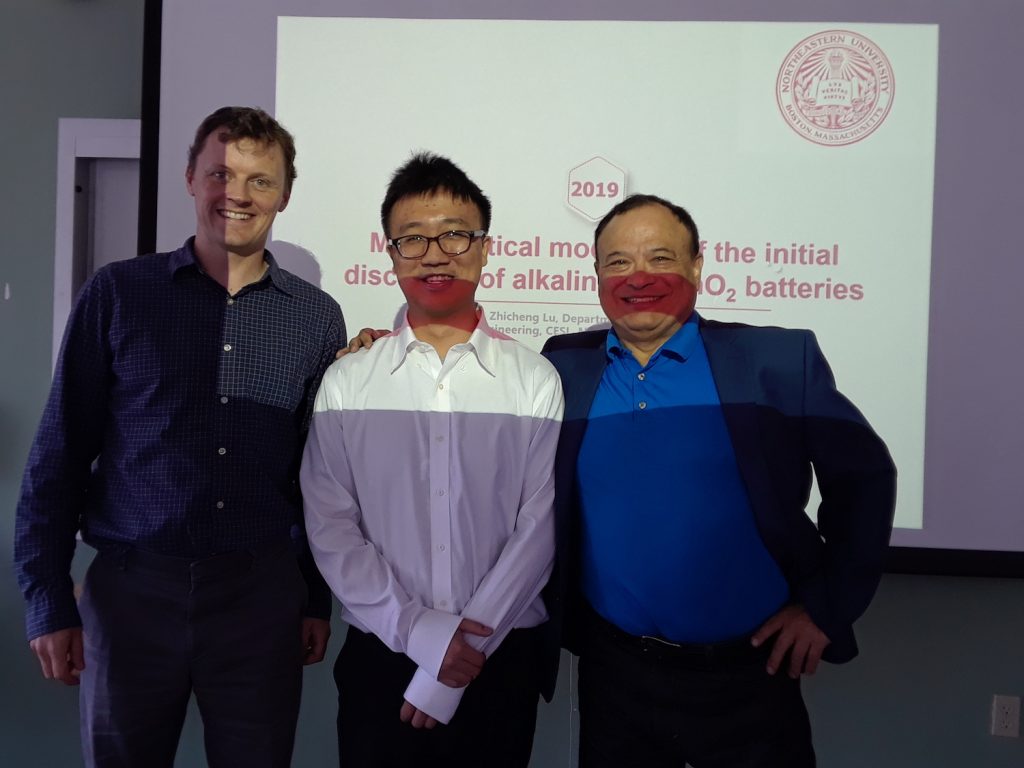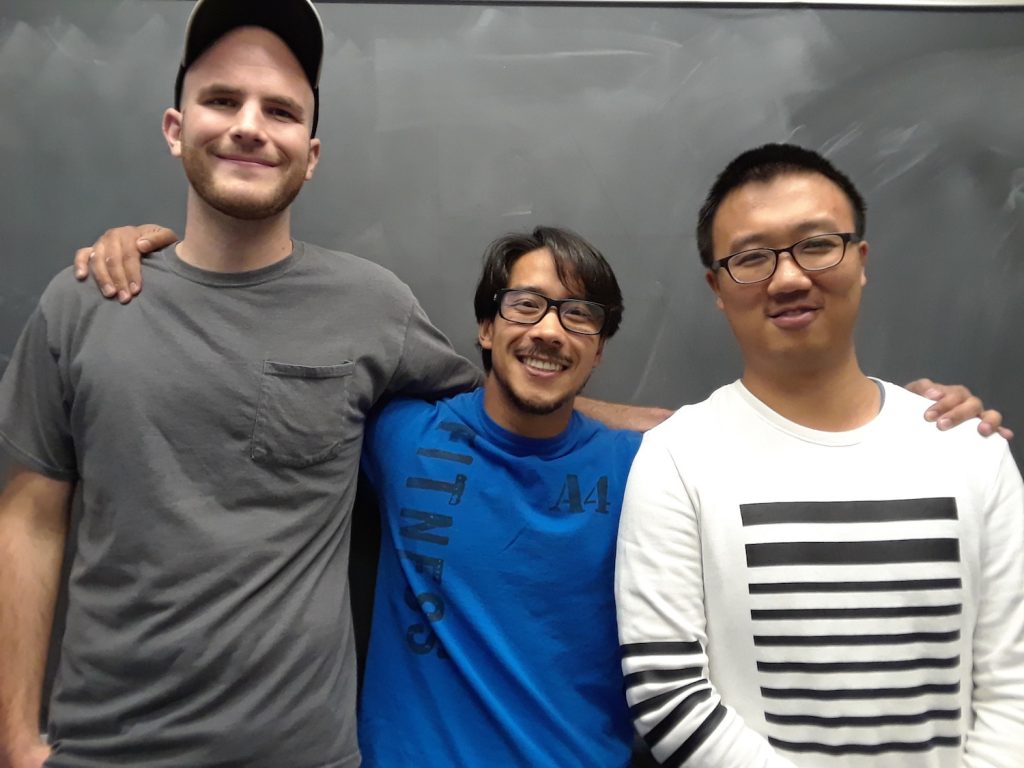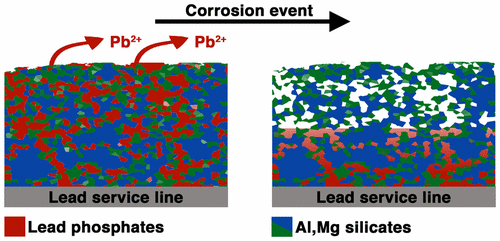Some educational slides posted by Matt Lacey, which are well worth checking out.
Category Archives: School
Zhicheng Lu’s defense

Congratulations to Zhicheng Lu, the first MS graduate from our group, whose thesis was on modeling the initial discharge of rechargeable alkaline batteries. Pictured here with his committee Prof. Richard West and Prof. Eugene Smotkin.
Our lab group
Introducing our lab group, seen here at our second ever Friday afternoon group meeting. From left to right, Ben Howell, Matthew Kim, and Zhicheng Lu. All devouring electrochemistry and coming up to speed. The future is truly bright.
I’ve been mulling over what to call the group. “Gallaway Group” would be fine, but as is the fashion these days perhaps it should be something both punchier and more descriptive, with an acronym involved. The Complex Electrochemical Systems Lab (CESL, pronounced “sessil” if you like) is what told Northeastern I might do before I got here, so maybe that’s it. What do I mean by complex? All electrochemistry is complex from a certain point of view. But here I specifically mean systems when multiple phenomena are important throughout the regime of operation, such as two kinds of diffusion (e.g. in a solid crystal and in an electrolyte) or three kinds of kinetics (e.g. both substrate and mediator of an enzyme, also with mediator electrode kinetics). To that you could say “That means all real battery or fuel cell systems are complex.” To which I would say “Yes that’s right.” But this is a defined viewpoint, a worldview, and those are good to set down for all to see. It tells you we will always be trying to break down a complex system, and then build it back up … engineered to be better of course.
Lead pipe corrosion in Flint
There’s a wonderful paper by Olson et al. in Environmental Science & Technology Letters called Forensic Estimates of Lead Release from Lead Service Lines during the Water Crisis in Flint, Michigan. From the abstract:
The findings provide evidence that selective dissolution of lead phosphate minerals occurred because of the absence of orthophosphate during the crisis.
I’m teaching the chemical engineering intro class at Northeastern this semester, and I’m putting in some information from this paper. Mismanagement of the water supply in Flint is a pretty perfect example of how not to do chemical engineering. The piping infrastructure in Flint required orthophosphate treatment of the water, and for some reason this practice was stopped.
Some exciting news: New job
I’m happy to announce that beginning this fall I’ll be the DiPietro Assistant Professor of Chemical Engineering at Northeastern University. There I’ll continue working to improve kinetics and transport within complex electrochemical systems. You can expect batteries, phase changes, and synchrotron science, as well as some new tricks. It’s an understatement to say I’m looking forward to it. See you soon.



